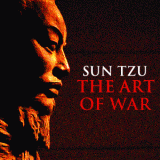OK so the GPL is a copyright license. But in part it has also evolved into something larger than life. It has become one of those rare things among legal documents – an icon.
Naturally it is not alone in this position. But what is interesting is that other icons tend to be “larger”. The US constitution is an icon, the declaration of rights is an icon. Very few contracts and licenses can be called iconic since few or none ever make it outside their small community. So what happens when the process of technological development forces the “evolution” of a license?
Unlike nature we cannot expect a natural selection. The development must be moved by an outside force. It can be done either dictatorially or democratically. In one way dictatorially is easier – you don’t have to ask all the people what they think. But using this process does not work with software licenses since the dissatisfaction of users will only lead to the demise of the license. Democracy also has its advantages. It allows for participation and the ability of smart people to bring forward comments and ideas that the dictator may not have recognised. The GPL has chosen a democratic process.
The formal system can best be seen in the overview of the process, which begins with the initial release and presentation of the draft of the GPLv3 with additional documentation such as the overview of the review system and the explanatory documents. In addition to the more formal structure the information needs to be communicated out to the users and to ensure an equality of information transfers was established. The latter was accomplished primarily through the use of the Internet as a distribution method of all texts and additional audio and video material.
The essence of the drafting process here described is to make it possible for the Free Software Foundation to decide the contents of the GPL through the fullest possible discussion with the most diverse possible community of drafters and users. Ideally, we would identify every issue affecting every user of the license and resolve these issues with a full consideration of their risks and benefits. In order to accomplish such a large task, the discussion process involves individual community members and Discussion Committees that represent different types of users and distributors.
The process was formally commenced with the release of the first Discussion Draft of version 3 of the GPL (including additional explanatory material) at the first International Public Conference in January 2006, at the Massachusetts Institute of Technology. The two day event at MIT was recorded and the audio video material was also made available online. The second draft has recently been released.
To ensure that comments on the GPL are collected and dealt with Discussion Committees have been formed. The members of the committees were chosen to represent diverse users groups such as â??â?¦large and small enterprises, both public and private; vendors, commercial and noncommercial redistributors; development projects that use the GPL as a license for their programs; development projects that use other free software licenses, but are invested in the contents of the GPL; and unaffiliated individual developers and people who use softwareâ??. The role of these committees is to organise and analyse the received comments and propose solutions.
The FSF invited the initial members of the Discussion Committees but granted the committees the power to invite further members and to autonomously organise their work process. The committees work to encourage commentary on the license from the sectors they represent. Once the comments have been collected, organised and analysed the committee is responsible for presenting its results of the deliberations to the FSF.
Aside from this organisational method of soliciting and analysing comments from a wider public the FSF have created an online method of allowing anyone to comment directly on the license draft. This is done by creating a software based commenting system, which works in this way. The draft text of the GPLv3 is online and users can mark a section of text, which they wish to comment, and then type â??câ??. Doing this opens a comment box, which allows the user to add a comment.
Once a user has commented on a section of text that section becomes highlighted. If no-one has commented on the text the background colour is white. After a comment the background is light yellow. The colour of the background becomes progressively darker for each comment added. This colour system allows users to see at a glance which sections of the draft are the most commented.
By holding the cursor over highlighted text the user is informed how many comments have been made on that section. By clicking on highlighted text the comments that have been made appear and can be read. The latter feature has the added benefit of reducing the amount of duplicated comments since the commentator can see the commentary of others.
So what are you waiting for? Participate in the democracy!
